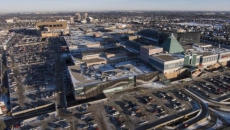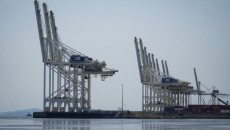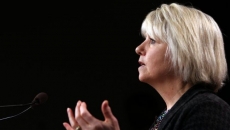Inflation is a term that's been making headlines across Canada, and it's not a matter to be taken lightly. Inflation rates have surged more than expected and come on the heels of claims by Trudeau's Finance Minister, Chrystia Freeland, that inflation was under control. Unfortunately the data tells a different story, one where Canadians are feeling the pinch in their wallets and struggling to balance the rising cost of housing with everyday expenses.
Inflation isn't just a number on a chart; it's a real issue that affects the daily lives of Canadians.
As the Bank of Canada puts it, “High inflation means that prices are climbing quickly and dollars don’t stretch as far. Purchasing power—our ability to buy products and services with the money we have—weakens. That’s how high and unpredictable inflation hurts an economy: If incomes don’t increase along with the prices of goods, everyone’s purchasing power goes down. People buy less and the economy starts to slow.”
Surely, Canadians, particularly those with lower incomes, are grappling with the impact of rising prices. A recent report shedding light on how inflation is affecting both the Canadian economy and households reveals that inflation began to rise in early 2021 and reached its highest point in four decades last year.
While headline inflation later eased in late 2022 due to a drop in gasoline prices, key drivers of inflation such as food and housing costs have shown little indication of slowing down. The most pressing concern is the increasing cost of groceries, which has surged by a staggering 8.5 percent in the past year. The prices of essential items like meat, vegetables, and dairy products have all risen significantly, making it increasingly challenging for families to put food on the table.
Throughout 2022, as inflation surged, Canadians expressed that they were most affected by increasing food prices, followed closely by higher transportation and housing expenses. Housing mortgage expenses have shot up by over 30%, leaving many Canadians feeling the burden of their monthly housing payments. This has prompted individuals and families alike to make tough decisions about their financial priorities.
Last year, nearly 75% of Canadians reported that the rising prices were impacting their ability to cover everyday expenses, with 30% expressing significant concerns about their ability to afford housing or rent. By the fall of 2022, nearly half, or 44%, of Canadians expressed serious concerns about their household's ability to manage housing or rent expenses. Additionally, one in four Canadians stated that they would struggle to cover an unexpected expense of $500.
One major factor contributing to the challenges Canadians face is that wages and earnings have not kept pace with the rising costs, especially in terms of food and housing. In the third quarter of 2022, the net savings among the bottom 40% of income earners fell below the levels seen before the COVID-19 pandemic. Simultaneously, younger households increased their reliance on debt to sustain their spending habits. It's worth noting that Canada's consumer inflation is comparatively milder than that in most other G7 countries, including the United States.
The situation may seem dire, but there are steps that can be taken and are being taken to alleviate the burden of rising prices and inflation on Canadian families. As Pierre Poilievre, Leader of the Official Opposition of Canada, has pointed out, Trudeau's carbon taxes and inflationary Liberal deficits are arguably contributing to the problem. Policy changes, such as reducing carbon taxes and addressing deficit spending, may potentially help ease the financial strain on Canadians, if that route is at all taken.
Local and provincial governments should and are aiming to prioritize affordable housing initiatives to help Canadians access stable and reasonably priced housing. Supporting renters and first-time homebuyers may be a step in the right direction. Moreover, promoting financial literacy is of utmost importance. Canadians need to be equipped with the knowledge and skills to navigate their finances effectively, especially during times of economic uncertainty. Nevertheless, in times of disparity, communities are coming together to provide support for those struggling with rising costs. Food banks, community gardens, and resource-sharing initiatives are helping ensure that everyone has access to essential goods and services.
Undoubtedly, the surge in inflation and the rising cost of housing in Canada have put immense pressure on individuals and families, forcing them to make difficult decisions about their finances. It is vital for policymakers, communities, and individuals to work together to find solutions to this crisis. By implementing sensible policies, supporting affordable housing initiatives, promoting financial literacy, and offering community support, Canadians can weather this storm and regain financial stability.






